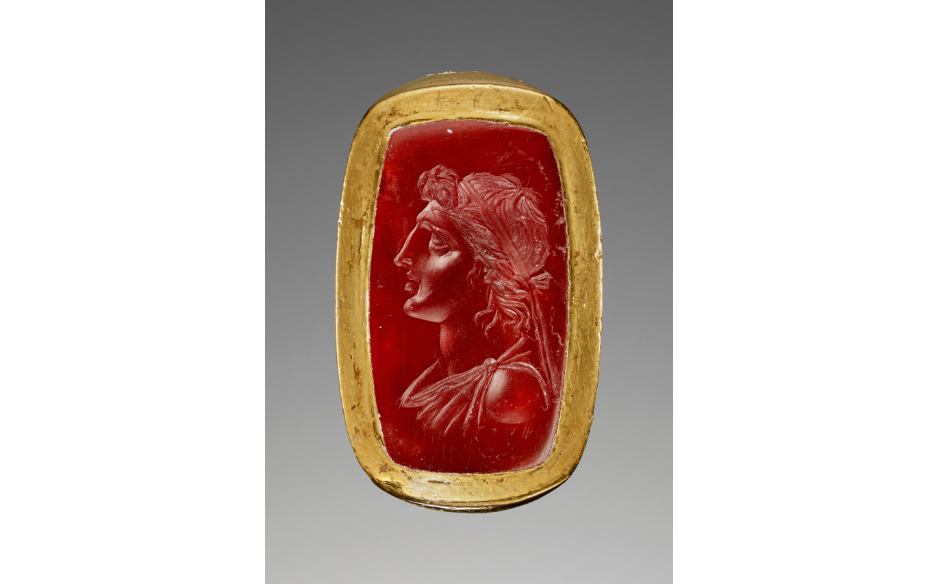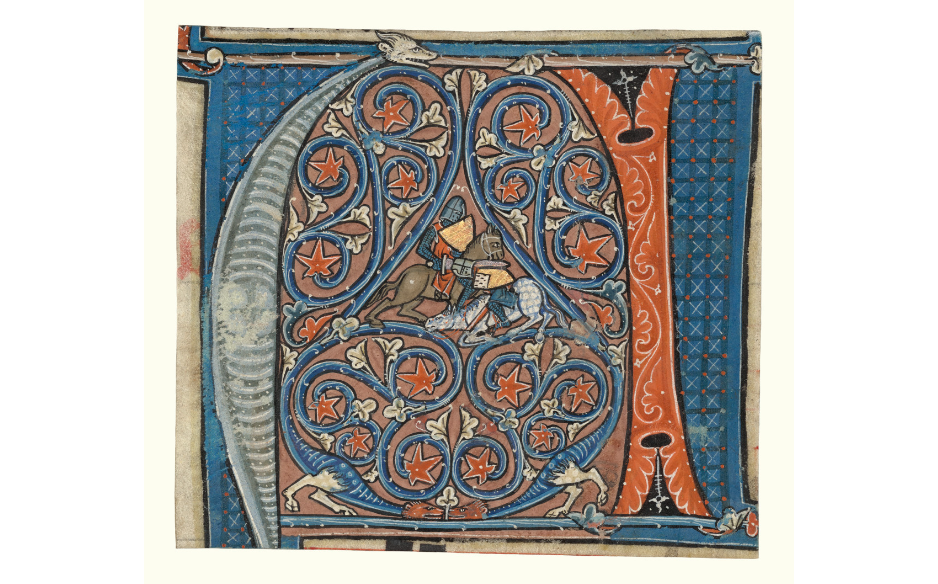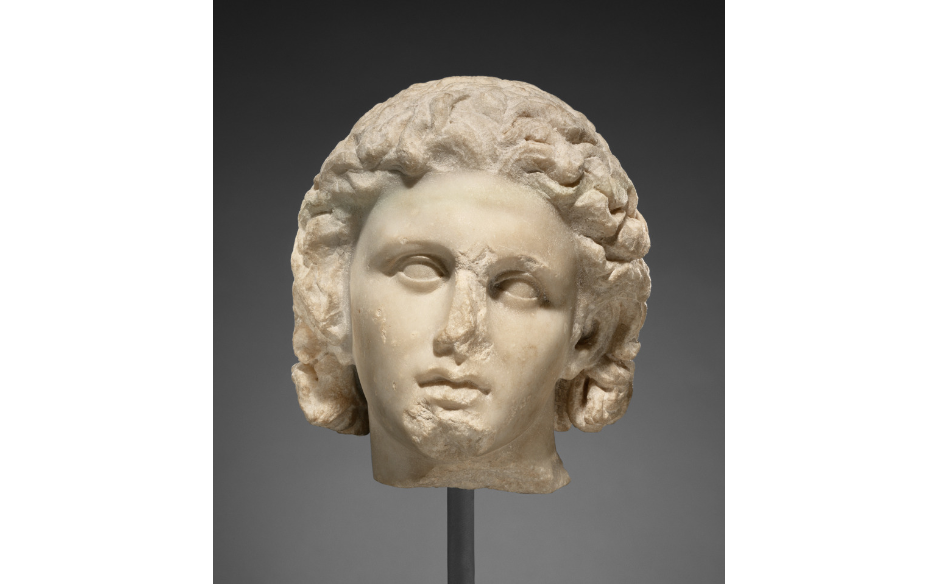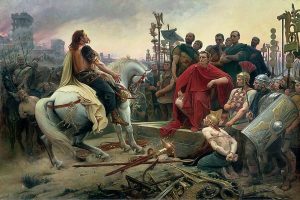We always hear stories about the greatest conquerors the world has ever seen, and in that list we always hear the name Alexander the Great. Even if you don’t possess a vast knowledge on his story, most have a general understanding on what he achieved. Alexander had a vast amount of achievements throughout his young and short but outstanding life, with him inheriting an empire at the age of twenty, due to the sudden death of his father, King Philip II. He then proceeded to conquer the largest empire in the world, the Persian empire; however, this did not come easy to him. He had to employ a strategy developed by himself and his army to defeat the Persian King Darius III, after which he proclaimed himself Emperor of Persia and King of Asia. This is the story of how Alexander became one of the greatest strategist in military history in order to achieve his desired goal.
Alexander was a prodigy child, and as a young child of thirteen, he was already being taught by Aristotle himself, developing a young mind with such knowledge. He developed a smart mind and an intellectual persona ahead of his age before he even turned seventeen.1 While still young and with no military experience, King Philip himself trusted his son, Alexander, to defend Macedonia at the age of sixteen. By eighteen, he had been providing assistance to his father by being given command of one of the Macedonian army cavalries, with which Alexander and his father shared several victories on the battlefield.2
In 336 BCE, after the death of King Philip II, there was an uproar as Alexander at the age of twenty inherited and proclaimed the title of king and of general of the army of Macedonia. As his biographers Sadler and Serdiville state, “Any conqueror is only ever good as the army he leads. Alexander had the great advantage of inheriting a seasoned fighting machine from his father.”3 People would try and take command of this throne and its army; however, Alexander would then proceed to kill his rivals in order to assert his crown and dominance. He then set himself up in order to defeat the Persian army, as it was the biggest threat in order for him to conquer Persia and Asia Minor. He proposed this to his people, with the excuse that he would be seeking revenge on the Persians and seek to fulfill his father goal of conquering the Persian army. Consequently, the Macedonian soldiers, and even civilians with no military rank, supported Alexander as he was fearless, yet he was feared by his enemies at a young age. He had already gained some military experience that only veteran soldiers would have.
Battle of Granicus
Alexander would begin his extensive conquest of Asia Minor with his significant challenge known as the Battle of Granicus. Alexander understood that he needed to take advantage of his army, and he propose the idea to some of his Greek allies, which after some thought decided to help him out. He decided to do this before the campaigning season would start because in the mind of a strategist, he knew this was a way to gain advantage as he would be attacking his enemy while it was off guard. Such an intellect himself proceeded to lead his army with the allied Greek forces into pushing into Persian territory.4 This allowed Alexander to open up his campaign against the Persian army and gain a significant advantage, as this would allow him to acquire more supplies for his troops, prepare his army in a better tactical advantage, and assert his dominance while seeking to challenge Darius III and his army.

Battle of Issus
As Alexander progressed through his campaign against the Persian army, he finally encounter what he had proposed himself since day one: an armed conflict against Darius and his troops. This was the first time they would encounter a fighting ground. The man who is now considered one of the greatest conquerors of all times learned that Darius was near Issus. Alexander decided to move his troops to the city and rich port of Issus, where he would set up camp for his injured troops, resupply his army, and find rest for his troops, and then he proceeded towards what is now known as Syria, where he would encounter his most anticipated rival, Darius. As the battle came closer, the tension between the two armies grew. Darius provoked an act of war as he marched into the port of Issus where Alexander troops were resting and recovering from injuries. He then proceeded to torture them and kill the injured men, and those who where allowed to live had their right arm cut off as a cruel reminder of what happened that day. This act filled Alexander with a passion to defeat Darius and seek revenge for his soldiers.5
When Alexander learned about the presence of Darius in Issus, he decided to march back to the river Penarus, where he would encounter an anxious Darius who could not wait for Alexander and his troops to battle him. As Darius learned about the positioning of Alexander, he prepared his strategy against Alexander’s army. However, there was one big issue that would end up costing the lives of many soldiers in the Persian army. The issue was the arrogance and ego of Darius, king of Persia himself. One of his most trusted generals, Charidamus, who was a formidable Greek strategist, who knew about the terrain and Alexander’s strategies, advised Darius to let him take on Alexander himself, so that their forces would be divided and achieve a quicker than expected victory. Nevertheless, as Darius saw himself having a significant numerical advantage over the army of Alexander, so he chose to ignore Charidamus and proceeded with what he had planned. On the other hand, Alexander, a mastermind of his own, understood his terrain and put it to his strategic advantage. He acknowledged that he had being outnumbered. He broke his army into three components: the left flank, which took four battalions of heavy infantry to the left, the right flank with three battalions to the right, and lastly, a concentrated infantry in the middle with the famous Phalanx formation.6 As the battle tension grew stronger and the troops started marching as they prepared for battle, both kings, as strategists, observed the moves of their opponents. Darius was the first one to make an important decision; he would try to attack and break Alexander’s right flank as it seemed weaker. This allowed Alexander to pursue that left flank and break into their formation. Once this happened, the inevitable seemed to be at the hands of Alexander. He spotted Darius in the middle of his troops, and he knew that his troops had already broken down both flanks. They could collapse on them and pursue Darius to a battle to the death. As Alexander marched on with his cavalry to attack Darius, they became unstoppable. Enemy troops around them were falling, Darius noticed how an injured Alexander was fighting everything against him to achieve his goal. He was a man on a mission. Darius in desperation, seeing the collapse of his army, decided to show weakness and he fled the scene. Alexander then chased him until the sun went down. But he returned empty-handed, and as a result, Alexander had an even bigger desire to defeat Darius next time they would meet.
Battle of Gaugamela
Alexander became victorious from a battle that has been remembered ever since as the battle where he went from being greatly outnumbered to causing Darius to flee in the middle of the battle. It caused the loss of many lives in the Persian army while leaving everything behind in the place of battle, including the gold and silver ornaments that were left in the tents that hosted Darius and his most memorable generals. Even so, that was not the most important thing left in the camp. Darius left his family, and Alexander, a gentleman, approached Darius’ family and promised them they would not expect any harm from him or from his army, and rather would be treated like the royals they were. Darius offered Alexander half his kingdom in exchange for his family, but Alexander refused, as he believed there was no reason to share a Kingdom, and even worse, share it with his worst enemy.7 As a result, Alexander challenged Darius again to a second battle, which would be known as the Battle of Gaugamela.
As Alexander became successful, he moved from Egypt and Israel, towards Babylon, and he learned that Darius was at Gaugamela. Alexander understood that beating Darius at Gaugamela would be more important than the battle of Issus had been, as this would allow him to become the king of Asia and weaken the Persian army for good. The main reason for this is that Darius had picked Gaugamela due to how much he knew about the terrain itself; therefore, he could set up his troops accordingly and place obstacles and traps around the terrain that would play to his advantage. One of the major issues that he experienced when battling Alexander was that his strategy involved the use of chariots. During the battle of Issus, the terrain had not been optimal for the use of chariots, which ended up being a big disadvantage for him. As a result, he would pick Gaugamela to maximize his chariot strategy. In addition, he would reunite most of his army while also paying Indian mercenaries to battle along his side, so as to once again outnumber Alexander on the battlefield.8 Alexander positioned himself some miles away from the current position of Darius in Gaugamela. He then proceed to set up camp and prepare a scouting party that would work on getting as much intel as possible from Darius and his army before the battle commenced. The scouting party was in search of higher ground to keep themselves as far as possible from Darius yet, at the same time, try to maximize the information they could acquire. They ended up meeting and exchanging a battle between Darius’ scouting party that was spying on Alexander. Once again, even in a small battle, Alexander’s troops would come out victorious. Some of the opposite scouting party fled, but the rest ended up being captured by Alexander’s men. These prisoners of war were taken back to Alexander to be interrogated. The interrogation was effective and simple, as they gave information on Darius’ numbers to Alexander.
As the estimates came in regarding Darius’ army, Alexander knew once again he would be in a tough spot; however, he sat down with his generals to prepare a battle strategy that could guarantee the win for them. In the midst of discussing strategy, the general of the left flank, Parmenio, suggested an overnight attack, when Darius would not expect this fight, and that could give them a significant element of surprise to counter being outnumbered. As a result, Alexander refused this strategy, as he thought that Darius would be expecting this. They knew that a surprise attack could mean an imminent win for them, but it would also be a cowardly way of beating Darius, as there would not be an even fight, due to the element of surprise. As a result, Alexander communicated to his troops that they would attack the next day during available sunlight. They should prepare for battle, and get as much rest as possible, as they would need it. On the other side, Darius prepared his men for an overnight attack. He predicted that Alexander would attack at that time; therefore, no man should rest; they had to be ready for an imminent attack. In the end, this would end up being one of the first mistakes Darius would make. 9

Ironically, Darius waited all night and day for Alexander to attack. It is said that Alexander overslept the day of the battle. As the time for the battle to begin came closer, Alexander approached his men, knowing it would be a difficult but great fight, he proceeded to give a motivational speech to his army, in order to get them ready for the challenge they were about to face. Everybody knew their role. Generals of their respective flanks and formations were ready to attack. The initial attack would begin with Alexander taking his right flank towards Darius’ troops. Darius proceeded to counter attack this by trying to push the left flank completely and put up some resistance through the right. Alexander knew that he would not put all of his forces in the front. Darius would rather have one of the flanks collapse and then have the middle of Alexander’s army collapse, leaving Alexander surrounded. Nevertheless, Alexander had prepared for this type of strategy; therefore, he had prepared the left flank for this to stop Darius as much as they could. Alexander’s advantage was that the left side of the battlefield had not been completely shaped by Darius’ men, meaning it was harder for them to move around and attack their enemy directly. With this to their advantage, Alexander kept pushing the right side in which he saw an opening in front of him that could lead to the middle formation of Darius, where he would be commanding his troops and fighting alongside them. Alexander proceeded to attack that opening. He insisted on attacking Darius first at some long range fight, and then he proceed to get closer. Darius saw Alexander get closer; he decided to push his central formation with the chariots leading the push into the phalanx formation of Alexander. The phalanx formation ended up being an unbreakable wall throughout all of Alexander’s campaigns throughout the years. It was proven in the battle of Gaugamela when Darius was unable to break the formation. This caused Darius to enter into desperation once again, as Alexander got closer to him.10

Once again, Darius was defeated; however, just as the first time in the Battle of Issus, he escaped the battlefield unharmed. Trying to save his own life while sacrificing the lives of any man in his army. As he escaped, a lot of his men tried to follow his lead. Alexander’s troops had no mercy on them. They ended up attacking them while escaping. This cost the lives of many Persian and Indian men. Alexander once again, feeling victorious, had shined on the battlefield with that strategist mind of his; however, he was not satisfied that he had not managed to kill Darius and proclaim himself King of Asia. Nevertheless, history would change forever when Alexander found out that Darius had been killed by one of his own satraps, due to him being angry about how he had fled, leaving a part of his army to die. Finally, Alexander proclaimed himself the King of Asia, and more importantly, he was able to finally achieve the goals he had proposed to his people at the beginning of his campaign.11
Alexander expanded his Macedonian army and throne throughout Asia become a fearless king, conqueror, and outstanding statesman at a young age. However, during one of his campaigns at such a young age, he fell ill and passed away. Alexander would later become known as Alexander the Great and one of the most accomplished conquerors of all time.
- “Alexander the Great | Biography, Empire, Death, & Facts,” Britannica Online, accessed November 28, 2021, https://www.britannica.com/biography/Alexander-the-Great. ↵
- “Alexander the Great Timeline,” Encyclopedia Britannica, August 28, 2020. https://www.britannica.com/summary/Alexander-the-Great-Timeline. ↵
- John Sadler and Rosie Serdiville, Alexander the Great: Conqueror, Commander, King, Casemate Short History (Oxford: Casemate, 2018), 43. ↵
- “Battle of Granicus | Summary,” Encyclopedia Britannica, accessed December 2, 2021, https://www.britannica.com/event/Battle-of-the-Granicus-334BCE.. ↵
- “Battle of Issus | Persian History,” Encyclopedia Britannica, accessed December 2, 2021, https://www.britannica.com/event/Battle-of-Issus-Persian-history. . ↵
- “Battle of Issus,” World History Encyclopedia, accessed December 2, 2021, https://www.worldhistory.org/Battle_of_Issus/. ↵
- “Battle of Issus | Persian History,” Encyclopedia Britannica, accessed December 3, 2021, https://www.britannica.com/event/Battle-of-Issus-Persian-history. ↵
- “Battle of Gaugamela | Summary,” Encyclopedia Britannica, accessed December 3, 2021, https://www.britannica.com/event/Battle-of-Gaugamela. ↵
- A.M. Devine, “Grand Tactics at Gaugamela,” Phoenix 29, no. 4 (1975): 374–85. https://doi.org/10.2307/1087282. ↵
- “Battle of Gaugamela,” World History Encyclopedia, accessed December 3, 2021, https://www.worldhistory.org/Battle_of_Gaugamela/. . ↵
- “Darius III | King of Persia,” Encyclopedia Britannica, accessed December 3, 2021, https://www.britannica.com/biography/Darius-III.. ↵



13 comments
Brandon Vasquez
This article about Alexander the Great really shows how much he accomplished in such a short time in his life. A young ruler bringing their people back together following the death of the king was not the easiest to do in ancient times with the amount of corruption and anarchy. Alexander truly was a smart man and set a precedent for future military generals for years to come.
Seth Roen
This is a great article about Alexander the Great and the accompaniments he had during his glorious but short life. Imagine having so much responsibility at a young age, from his first military command to conquering the world. While reading this article, you can’t help but wonder if Alexander the Great was a genius or just crazy enough to do it, which allowed him to gain victory over his enemies.
Christian Anthony
Its sad to think that if Alexander didn’t die from his illness the world would probably be a lot different. I also remember stories of Alexander in childhood but I never knew the full story and all his great accomplishments. To be able to win the loyalty and support of his people really shows how inspiring and great of a man Alexander really was. Alexander being a very smart and a cunning strategist shows his independence in comparison to his peers, him being above the majority.
Dhwani Chandi
This article is a very well defined and powerful article, I have heard the stories about alexander since childhood, and reading this article made me nostalgic about all the stories I have heard about him before. This is a very detailed article with pictures one of the pictures which were really interesting to me was Alexander the Great defeating Darius. I hope everyone gets to read more articles like this.
Carlos Hinojosa
This is a great article about Alexander the great, it did a great job of listing his accomplishments and how he obtained these accomplishments with his great mind. I personally believe Alexander was one of those people that could be put into an any period of time and become successful or even greater than he already was. If Alexander never died to disease, I know the world would look very different then it is now.
Andrew Ponce
The author truly displayed their knowledge of the topic. What was interesting to read and discover, as the audience, is that not many people knew about Alexander the Great, and the author goes really in depth with his backstory and his origin. A large detail that the writer gives, the description of different battles throughout his life, as well as the imaged plan of the battle of Gaugamela. Great article
Sara Davila
The author explains the whole timeline about the rise to power that came to Alexander the great very well. Since Alex was born, he was taken under the wing of absolutely intelligent people who taught him all he knew. Due to his father passing at the age of 20 Alex was in charge of an army as well as the throne of Macedonia, once hearing about the self-proclaimed king of Persia Darius the third. He set out on a journey to claim the title his very own enemy was sought to be. This journey is what created the name Alexander the great.
Gisselle Baltazar-Salinas
Before reading this article I knew very little of Alexander the Great, I had no idea he died from an illness I always assumed it was in battle that he had perished. Nonetheless, this was very well written and informative I was engaged the entire time eager to know what would happen next. I did have a lingering question after reading. I wondered if Alexander ever fell in love or had a love interest. Did he ever have a desire to have a family of his own? Or did he die before anything like that could happen?
Ruben Becerril
I have never really known why Alexander the Great was great, but after reading your article I have gained lots of knowledge. I found it interesting that Alexander’s dad trusted him with such a big responsibility of defending Macedonia at the age of 16. This made me understand that Alexander was a quick learner as well as a smart leader even when he was young.
Madeline Chandler
This is such a well written engaging article. Very captivating and informative. I had heard of Alexander the Great since I was in elementary school. However, I had no idea of the favor he had with his people and as well as his strong military strategy. Yet he also motivated his armies with speeches surrounded by encouraging them to be strong in the face of enemies. Job well done! Enjoyed it!